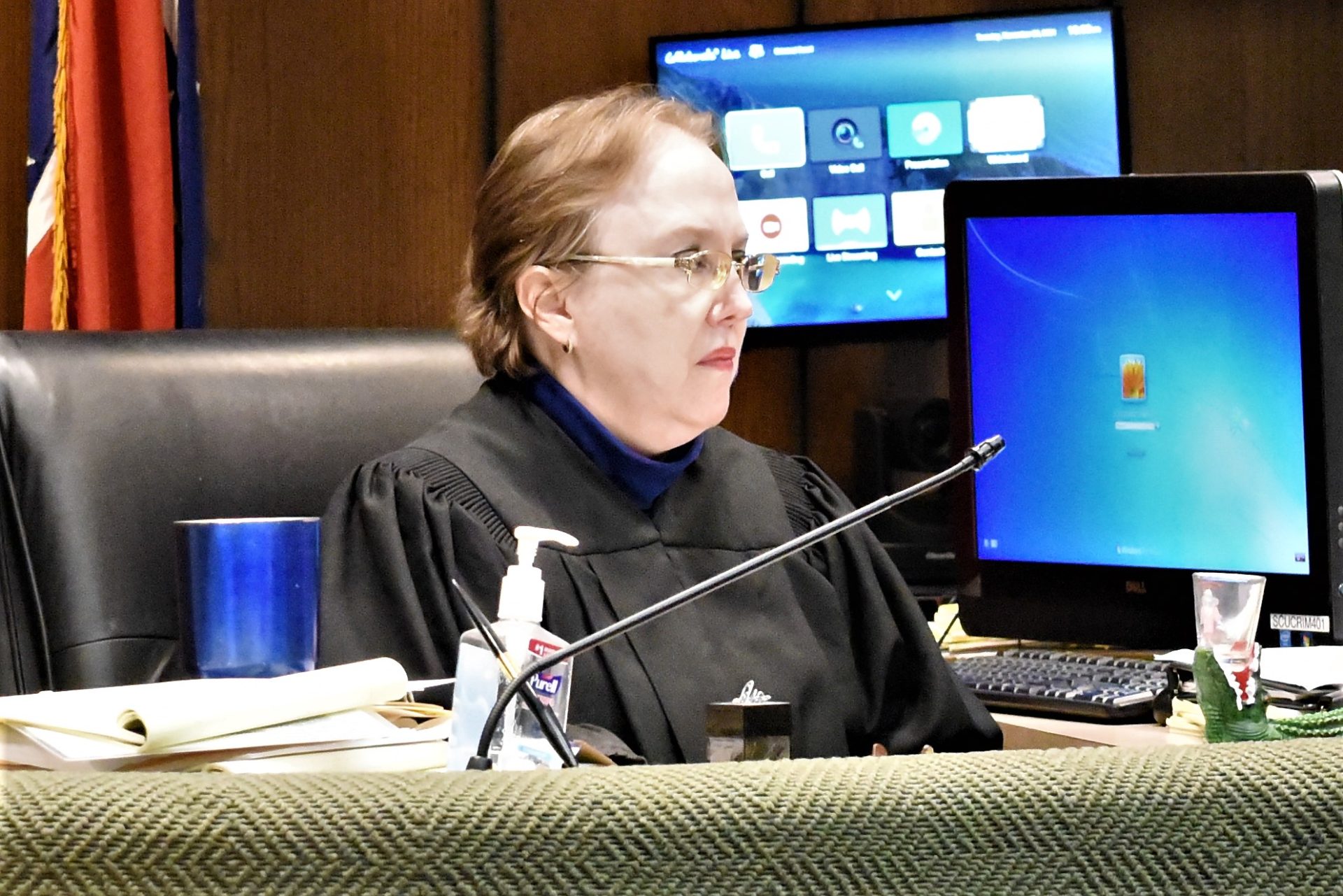A two-day re-sentencing hearing before Criminal Court Judge Paula Skahan for ex-death row inmate Pervis Payne on Monday and Tuesday (Dec. 13-14) featured compelling testimony from defense witnesses and family members of the victims Payne was convicted of killing.
At stake is whether Payne, whose death sentence was vacated, will serve two life sentences and a related 30-year sentence concurrently (at the same time), which possibly could make him eligible for parole in six years. Or, the sentences will run consecutively (one after the other), possibly making him ineligible for parole until he is 85.

Skahan is scheduled to rule on sentencing Jan. 24.
Payne, in 1988, was convicted for the brutal stabbings of Charisse Christopher, 28, and her 2-year-old daughter, Lacie Jo, on June 27, 1987 in Millington. Christopher’s 3-year-old son, Nicholas, also was seriously injured in the assault.
Payne, who has spent 34 years on death row, and his supporters have maintained his innocence.
During the two-day hearing, 23 defense witnesses extolled Payne’s favorable disposition and good character in an attempt to show Payne, if released, is not a threat to others.
The prosecution wants Payne to remain behind bars for life. Three relatives of the victims took the stand to express the continued suffering and ruin of a once-happy family.
Re-sentencing was scheduled for Dec. 13 after Payne’s death sentence was vacated by last month when the Shelby County District Attorney General’s Office conceded that Payne could not be executed because of an intellectual disability.
Christopher’s sister-in-law, Kathy Hites, gave especially moving testimony:
“There was so much love, and it was taken away from us. Charisse didn’t have a choice. We didn’t have a choice. She’s forever with the angels,” Hites said.
Among defense witnesses was prison guard Capt. Robert Mosley, who said Payne, along with another inmate, risked his life to rescue him when Mosley was attacked.
“They both grabbed me, put towels on me, without thought or concern for themselves,” Mosley said. The guard’s injuries were serious, requiring 57 stitches.
Payne consoled the captain and waited 11 minutes with him until the medics arrived, according to Mosley.
“Mr. Payne conducts himself as a man,” Mosley said. “He treats you with respect. Personable, I respect him very much.”
Jeff Dobyns, a representative of a religious, non-profit organization Men of Valor told the judge he would “gladly host Mr. Payne upon his release.”
Bishop David Hall, pastor of Temple COGIC, and a long-time family friend, also praised Payne as a person of exceptional character. Supt. Carl Payne, Payne’s father and a retired Church of God in Christ bishop, has garnered the support of thousands in the denomination praying for outright release.
“I feel badly for the family of this mother and her child, but racial prejudice and bigotry convicted Mr. Payne,” said Hall. “The prosecution lied and said he was on drugs, even though they refused to test Payne for drugs. Every aspect was badly mishandled.”
Kelley Henry, a defense attorney with The Innocence Project, represents Payne and has maintained that the murders bear the marks of a domestic situation.
“This was a personal crime, full of anger and rage,” said Henry. “We asked for the fingernail scrapings from the victim to be DNA tested, but they have disappeared. So many mistakes and mishandling of evidence were made.
“The court cannot fix it. That’s why we have clemency. Only the governor can save this man’s life.”
(The Associated Press contributed to this story.)